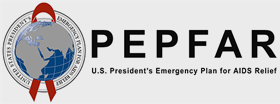GHSC-PSM's support to ISSS and MOH stemmed from previous supply chain assessments in 2014 and 2015 that revealed fragmented processes, a lack of leadership and accountability and a clear need for institutional collaboration. The assessments evaluated areas from health commodity forecasting to distribution to quality management and highlighted the following in their findings:
- Inadequate oversight and standardization across supply chain areas, including commodity orders, price monitoring and product maintenance.
- Insufficient distribution and control mechanisms at institutional levels.
- A lack of streamlined purchase order processes, which resulted in imperfect forecast accuracy of centralized purchase orders.
- The need for stronger coordination and integration of processes among logistics institutions to improve logistics capabilities, such as inventory loans or joint purchases.
There was a clear need for leadership to integrate the essential functions of supply chain work to ensure a system of defined checks and balances. The 2019 change in leadership presented a new opportunity to create a cohesive strategy between the MOH and ISSS, with a cross-cutting team to lead the effort. Together, they formed the logistics management unit (LMU) to support both institutions. The LMU enables collaboration and coordination of activities, maintains supplier relationships and monitors contracts with the individual buyers responsible for product records and planners responsible for inventory records. This would ensure compliance and implementation of supply chain best practices. At its core, the LMU would break down the historical barriers to coordination and logistics integration between the two institutions.



